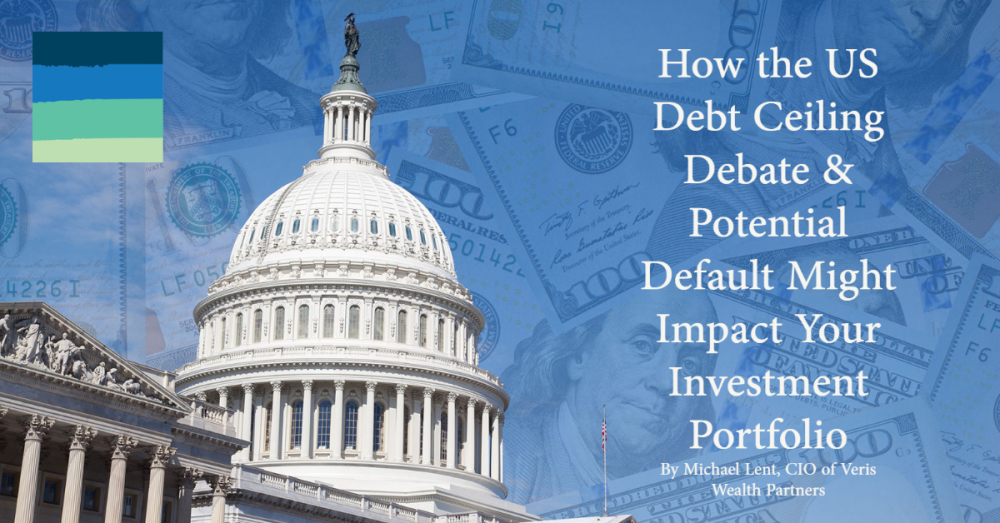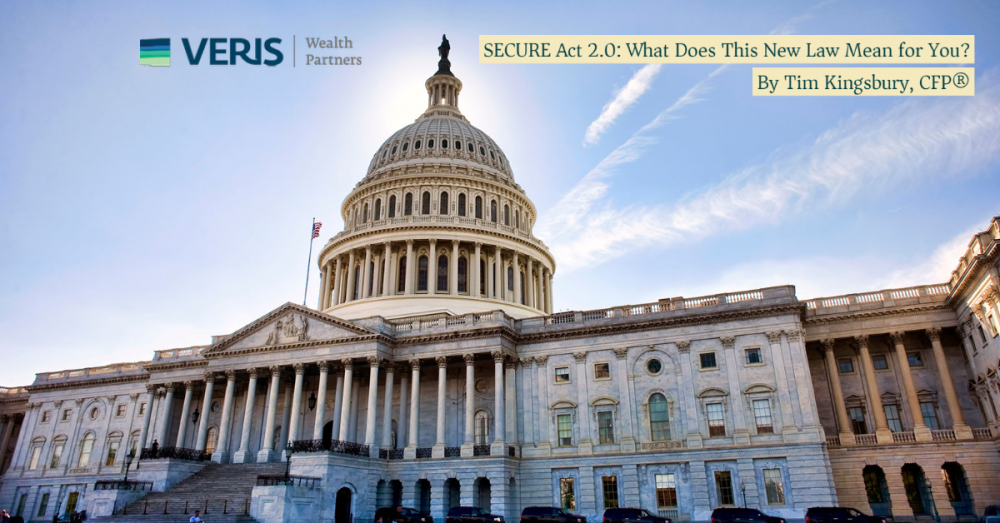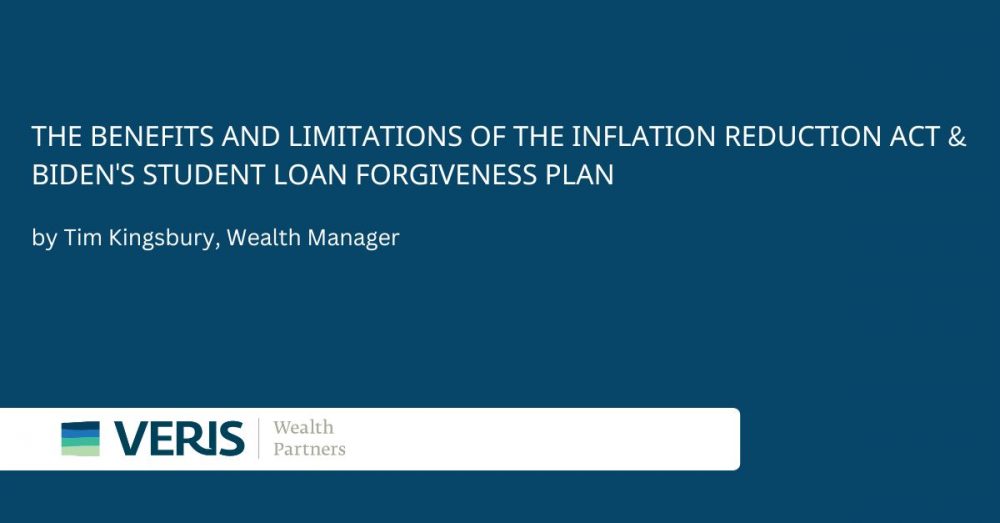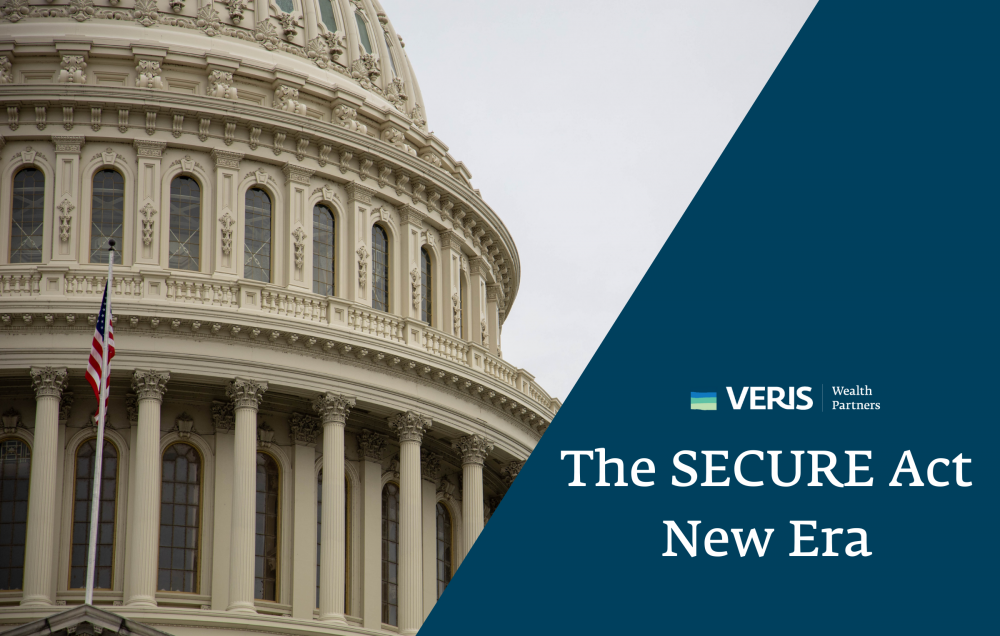Veris Interview Series: Timothy Smith
Transcript
Stephanie Cohn Rupp: My name is Stephanie Cohn Rupp. I am the CEO of Veris Wealth Partners, which is an ESG and impact investing focused financial advisory firm. I am delighted to introduce Karen deRochemont, my colleague and fellow Veris Partner who is Director of National Client Service and Chair of our firm’s Policy and Engagement Committee. Karen, do you want to introduce our guest of honor?
Karen deRochemont: Thank you, Stephanie, I am happy to introduce our guest. Timothy Smith is a responsible investing pioneer, a leader in corporate responsibility and shareholder engagement for over five decades. Tim started his journey with a BA from the University of Toronto and Master of Divinity degree from Union Theological Seminary. Tim is a founding staff member of Interfaith Center on Corporate Responsibility (ICCR), where he served as staff for 30 years, including 24 years as executive director. Currently, he serves as ICCR’s Senior Policy Advisor. Additionally, Tim led Boston Trust Walden’s shareholder engagement efforts for 22 years, beginning in 2000. Tim has been named in numerous honors, including top 100 Most Influential People in Business Ethics and the Joan Bavaria Award for Impact. And was also named as one of the most influential people in corporate governance by the National Association of Corporate Directors. We are excited to have Tim join us for this conversation.
Stephanie Cohn Rupp: Thank you, Karen. Welcome, Tim. We are going to start with the basics. You have spent decades with ICCR, and we would love to hear from you about the organization. What strategies does ICCR use and what issues does it work on?
Tim Smith: I am thrilled to be here. Thanks so much. I have had a chance to work with Veris Wealth Partners over the decades and appreciate your leadership. As Karen indicated, I was one of the early founders of ICCR in the 1970s. We are now over 50 years old, and ICCR has grown to be an organization composed of about 300 investors small and large. We include religious investors, pension funds, trade unions, and investment managers too.
ICCR members use a whole variety of strategies and approaches to address their work. Of course, they are active share owners. And so, we engage companies in conversations through letters and sometimes through shareholder resolutions where we file resolutions for discussion, debate, and votes at stockholders meetings. We are also involved in public policy concerns, public education about ESG, and being a leading force trying to protect our industry as we are under attack now as we have not seen before. That is our basic approach. We work on dozens of issues, everything from climate change to diversity, human rights to lobbying and political spending, drug pricing and opioid addiction. You go down a very long list of issues that our members are engaging companies on and doing it with some, I think some positive impact over the decades.
Karen deRochemont: What are some of the best examples of positive outcomes achieved through shareholder engagement that you have seen? Could you share one from a historical perspective and one more recent?
Tim Smith: If you look over the decades that investors have engaged companies and tried to be a voice in the marketplace, there are I would say scores and scores of examples where companies have changed their policies and practices in response to either encouragement from or pressure from their shareholders from their investors.
One of the issues that many people will remember historically was the whole question of investing in apartheid South Africa. In the 1970s, it was the Episcopal Church that filed the very first shareholder resolution on a social issue by a religious group. And it was filed with General Motors, encouraging them to disengage from South Africa because of the apartheid system. And that resolution led to hundreds of companies being engaged over two decades of work. We must be careful here not to pretend that one strategy or one set of voices was the primary voice for bringing about pressures on South Africa. It was a whole range of global pressures, but I think it is important to note that the investor voice, or even the voices of universities and other institutions decided to sell their shares and divest from companies in South Africa, those voices were heard in corporate boardrooms, as were the shareholder resolutions that populated company proxy statements for decades. The history of South Africa, facing such dire economic pressure, decided to come to the negotiating table and the result was Nelson Mandela being freed from prison and becoming the president of South Africa. That is an example of working on something for decades. It took 20+ years of hard work on that issue.
To jump into more current times, the work that, not just the faith community is doing, but so many investors are doing on climate change is significant because we are facing a climate crisis. Investors are letting companies know that they either appreciate their leadership or need them to step up and address the climate crisis with urgency. And that means reducing their greenhouse gas impact and doing positive things to address climate change.
One example would be the pressures that ICCR members have been putting on companies on their climate lobby – how they are trying to influence public policy on climate. Our initiatives have been pressing companies to look at what they say they stand for and yet how their government affairs departments may be lobbying contrary to their views and certainly some of their trade associations like the Chamber of Commerce would be undercutting their very values.
It is interesting that you have issues like climate change, where I think our voice has been exceedingly important, but at the same time, we are all realistic and we recognize that. Whether it is the voice of investors or governments or NGOs and environmental groups, we are all fighting very hard to try to make climate change solutions a reality. And we are all somewhat discouraged by the lack of adequate progress.
I will point at one other example. For years, investors have been encouraging companies to report meaningful information on what we call sustainability practices. And companies would say, too expensive, nobody will read it, nobody cares, why would we do that? And now a decade and a half later, 90% of major S&P 500 companies do meaningful sustainability reporting. Now, some could get better, but nonetheless, they recognize this as an issue. So, we could go on with numerous other examples of companies changing their governance practices or companies changing their diversity practices because of shareholder input. And it is one of the reasons why our voices are so important.
Stephanie Cohn Rupp: Thank you, Tim. What is also interesting is the rise of shareholder activism and how it has ebbed and flowed. There have been attacks against minority shareholders’ ability to file or co-file a resolution.[1] Which corporate leaders have considered to be a distraction from the business or an attack on long-term shareholder value. Can you share with us some of the changes that you have seen around shareholder activism in the course of your career? And do you feel like we are now seeing more activism or, because ESG is under attack, are you seeing people recoil from leveraging engagement and going to divestment or screening?
Tim Smith: You are right. In the early days, one would celebrate if we filed a shareholder resolution, and we got votes of over 3% because it allowed you to come back the next year. And in those early days, many of the investors who were raising questions about diversity, or the environment or South Africa were motivated by a social mission, and they were committed to try to present that to the business community. If you jump ahead five decades, the landscape is as huge as all outdoors. And while we still have many investors who are very concerned about protecting our environment, that is their first priority, we also have investors with tens of trillions of dollars who are active leaders in this ESG space because they see these as issues that affect shareholder value.
I will give you an example. I served on a panel for Tom DiNapoli, the Comptroller of the State of New York, which has a well over $250 billion dollars that they manage. And he reminded us, as he was legally required to, that their priority is to protect the financial interests of their beneficiaries of the pensions – of the teachers and et cetera. And therefore, the work that they did on climate or on diversity or on protecting LGBTQ rights was all their motivation was believing that those issues have an impact on the bottom line, and therefore companies that are better dealing with them in a more positive way are protecting long term shareholder value. Whether you are New York State, CalPERS or CalSTRS, pension funds in California or New York City, you will hear that motivating force often, right?
Within ICCR, we have folks who have different motivations for being there. I am on the board of the pension fund of the United Methodist Church called Wespath. It is fairly large, over $25 billion. And it is a pension board, so it has to protect its beneficiaries. But they are also trying to be faithful to their religious beliefs and so they walk that interesting tightrope between faith and finance and trying to excel at being responsive to both.
So, the new world we are in is one where we have groups like the Principles for Responsible Investing that have investors globally with over a $100 trillion dollars of assets under management that are committed to addressing ESG because they have a firm belief that it affects shareholder value. So, you look at environment, social, and governance issues, because they affect shareholder value. So that is a very different context that we work in today than even 20 years ago.
And the new thing you mentioned, Stephanie, that is important to note is we now see conservatives have a strong right-wing agenda who are using shareholder resolutions as well. I believe there are about 90 filed this year and they are strongly opposed to work on diversity. They argue that white men are being discriminated against and we should get rid of these affirmative action programs. And many of them are climate deniers. They are a loud player in this space, but the market is responding. The marketplace is telling us that the anti-ESG vote, while they have a right to be put on a proxy under the SEC rules, are not going to come back because they did not get enough of a vote. Whereas resolutions on climate have stirred up a considerable, meaningful debate that accelerates positive growth.
Stephanie Cohn Rupp: Just to play devil’s advocate, the votes towards or in support of climate resolutions are gaining more and more momentum, but they are not winning. We are still talking about a victory for the movement is 20% or 30%, but we are still not voting directors out of their roles. We are just giving them less support. And do you think that we are going to come to a point where, we just need, it is an issue of coalition building and getting more momentum so that it is no longer just signaling by a stronger minority percentage, but a majority percentage, or do you think that is an optimistic view?
Tim Smith: I like your term signaling and I am glad you asked. Let me start off with the premise that winning is not getting 50%. Oftentimes a resolution is sponsored, or even there is an engagement with a company before a resolution, and you come to a meaningful agreement on companies taking steps forward. About a third of them are withdrawn because there’s agreements reached through dialogue with the company. That is positive progress. I do not know if we call them wins or successes, but it is positive progress that the company and the investors have come to common ground.
Secondly, if I am on a board and a shareholder resolution on an issue gets 30% of the vote, I see that as a very important signal. If I am looking at the pay package of a company and I am on the compensation committee and that pay package gets like a 20% no vote. That is an alarming number for me as a director. Usually, a comp committee will immediately go on the road and talk to their large shareholders and say, how do we need to change our formula? What are you concerned about?
I am going to argue that a resolution of 20% or 30% still sends a message, especially with issues that are important but do not yet have public focus on it. Take an issue like plastic waste, which groups like As You Sow and others have been working on for well over a decade. In those early years, they were raising the issue thoughtfully, powerfully, but they did not get much momentum. Now, not only are the votes significant, and a couple of years ago, we got several votes over 50%, but a company can read the tea leaves and say, this is an issue whose time has come. It is material for us. We need to address it. This process is not all about getting 50% votes. It is making a meaningful business case that companies, industries, and oftentimes government will embrace and say is important. And in some cases, in the cycles of the votes that we have seen in the last decade, we did see over 35 majority votes that went over 50%.
Finally, you mentioned a good point, Stephanie. Some critics say it seems unfair for minority shareholders to be able to file resolutions. There are two individuals who are really active proponents, James McRitchie and John Chevedden, who have been filing resolutions as small individual shareholders for years. They have filed it on governance, and they are filing it on some of the social environmental issues as well. And their resolutions, particularly on governments governance, maybe they had a hundred shares. We are getting 50, 60, 70% of the vote on some governance votes. What does that tell you? That tells you that huge institutional investors saw the request that was put on the table to be meaningful and smart governance, and they were going to vote for it, whoever the sponsor. Interesting, right? So, we see both small investors and large investors who have an important voice in creating this change in our marketplace.
Karen deRochemont: Tim, could we explore the ESG attacks a bit more? Anti-ESG attacks are getting sharper and more political. What impact do you believe these attacks might have and what do you think our response should be?
Tim Smith: You are right, Karen, that the attacks have become sharper, much more politicized. I think the attacks are cannon fodder for some politicians who see this as a way of building their voice, their vote, and their base. Attacks against anti-woke companies and anti-woke investors, and many of the people on this call would be considered “woke” but those attacks are also against companies like Walmart and Intel and other companies that are making a commitment to work on diversity and climate and human rights and supply chain. Strong conservative voices are criticizing companies who are doing that, arguing they are taking their eye off the ball of just making money for shareholders.
The attacks run multiple levels. In Congress, we see them. Last week there was a hearing on antitrust that had Mindy Lubber from CERES and somebody from Arjuna Capital, and somebody from CalPERS under attack by the conservatives in the House who were arguing that they were violating antitrust by talking to each other about issues like climate change and sharing information. Strange, right? Because those same people do not attack oil companies, they get together in the American Petroleum Institute and share information – as is their right. So why, when our investors are talking about a key issue, why is it an antitrust violation?
Of course, on the House floor, there were also Democratic speakers, including the Attorney General of Minnesota, who was a former member of Congress, Mr. Ellison, who is an expert on both climate and antitrust. And he said there is no evidence of any antitrust violations. But, back to your point, Karen, it does not matter if there is a real case. It is a good sound bite, right? So, they say things like you are violating the antitrust rules. You are pushing ESG criteria into investment decisions and losing money for beneficiaries.
The State of Texas and the State of Oklahoma decided to not do business with certain companies that they consider in that category. The state of Texas pulled $8 billion from BlackRock. BlackRock actually saw its business grow because investors in Europe that were very strongly committed to ESG principles were giving them business. No company likes to lose clients, but at the same time the attacks were misguided, foolish, arguing that BlackRock was boycotting oil companies. BlackRock owns stock in virtually every oil company, but they also are willing to talk about the need to have a climate transition, right? And then we are all going to face that, whether it is a company or an investor.
We are seeing attacks in Congress and at the state level. We are seeing attacks by right wing groups who are attacking companies. We are seeing suits to challenge the SEC’s rule on climate change, suits that have been blocked for the moment. This is serious business. We have never seen these issues in our industry under attack like this before.
At the same time, here is some good news, the attacks have been less successful at the state level. There were anti-ESG laws and regulations proposed in well over 30 states last year. And this year, very few of them passed and now studies are coming out showing that in Oklahoma or Texas the pension funds are going to lose perhaps billions of dollars because of the legislation that has passed. So suddenly it becomes an issue of a fiduciary duty for a pension fund. And we have seen some, I have no idea what their politics are, but some people working for pension funds or trustees who say this is not prudent, I do not want these laws to be passed.
Stephanie Cohn Rupp: Can you explain for our audience why these pension funds lost billions because of these laws? There’s also loss from a taxpayer perspective because of less competition. For example, with municipal bond issuances, by nixing certain banks from bidding for business these states had increased debt service to issue general obligation bonds or specific project bonds. So, the taxpayer paid, but can you explain why the pension funds also lost billions?
Tim Smith: That is an important point, Stephanie – who is winning, who is losing by these pieces of legislation. The pension fund may be losing too, if they have to move from specific managers and they have to go to a manager that is costing them more. And then you have the dislocation of moving your investment pool from one manager to another. The fund is often paying a financial penalty. And as you said, the taxpayer is as well. And in places like Indiana, for example, when the bill was proposed some of the folks in the pension world did a cost analysis or risk analysis of what this bill would mean. And they pointed to ways in which the fund and then the beneficiaries would face penalties from these very extreme pieces of legislation.
Stephanie Cohn Rupp: And now Exxon Mobil, which I believe is the largest emitter of carbon dioxide of all listed companies, filed a lawsuit against two shareholders, Arjuna Capital and a Netherlands based organization called Follow This, because they filed a shareholder proposal requesting that the company do more to reduce its greenhouse gas emissions. What should people know about this case? And what is your takeaway? I understand that there was a recent development.
Tim Smith: That is an important case and not a narrow one. We will talk about the bigger picture. Last night, the judge in the case ruled that it was moot. Even though there was lots of criticism of Arjuna Capital, he ruled that, in fact, there was no resolution on the docket, and Arjuna had pledged not to file one next year or to cause it to be filed, and therefore the case was moot. Now the Exxon case is off the court docket, but this was a highly unusual action.
Stephanie Cohn Rupp: There was a level of aggression that we have not seen. Share more for our audience about what actually occurred.
Tim Smith: Yes, you put the right words on the table – level of aggression. With Exxon Mobil, some of us were involved in dialogues with them for years. They were willing to talk to their investors about climate change and about other issues, too. And they would host meetings where maybe 25 investors would come and have a half-day conversation with them about the climate and not just listen to the presentations but put their own positions on the record. Here was a company who for decades was willing to do that, at least have the door open.
What was highly unusual and aggressive, this year Exxon decided to sue two investors who had filed a resolution on climate change, urging them to move faster. They sued the investors and said that if they won the investors should have to pay court costs. For a small investment firm that would be quite a challenge. But this was very unusual. It is not that it has never happened before. But this was, I think, the first time I have seen a resolution on climate change challenged in the courts, rather than going through the process of appealing to the Securities and Exchange Commission who would adjudicate and decide whether the resolution could be on or not. And here is the irony. Exxon had a pretty good case if they argued it at the SEC, saying this resolution is pretty similar to one last year. It did not get enough votes. It should not be allowed on the proxy.
My own view is they would have had a rather good possibility of winning at the SEC. But instead, they used a nuclear option of suing shareholders and having that suit go on for months, even when Arjuna and Follow This said they pledged not to file the resolution that was being challenged.
But the second part of the suit was not just about these two shareholders. It was attacking the Securities Exchange Commission for the way they had been ruling. So, it is not even an oblique attack. It is a rather open attack against the SEC. And I think it was alarming to investors who feared that other companies might follow suit, and this would become a new tactic. I do not like a resolution — I’m going to sue you. I think it also was an occasion where the aggression was not just in the courts, it was in their proxy statement where they challenged and insulted investors who are filing resolutions. They use the term that some of these investors have extreme agendas, meaning they do not have the financial interests of the company at heart. They also argued that they were not bona fide shareholders because they had small holdings. In the case of Follow This, they bought to be an advocate. They followed the SEC rules, but Exxon felt they could make an example of them. This broad case of aggressive action against investors is a new chapter with Exxon and we hope it is not a new chapter of souring relations between companies and their investors.
But here’s how investors respond. Two ICCR members, Mercy Investment Services and Wespath, the United Methodist Pension Board, filed a solicitation arguing that investors should vote against both Darren Woods, the CEO, and the lead director, Jay Hooley, because they should be held accountable for this suit. And they made the business case for it. And thus, began months of a lot of stories, a lot of controversy, and many major investors who declared themselves supporting that no vote position, whether it is New York State and New York City or CalPERS and CalSTRS. And CalPERS, the public employees retirement system, didn’t just say they were going to vote no. They decided to vote against the whole board. They were active on the airwaves making the case that this was an abuse of power. Other investors talked about it being bullying. In other words, it was an extremely strong pushback.
Now, you were talking earlier about symbols, Stephanie, and what mattered. So, in the end Jay Hooley got about a 13% no vote, which puts him in the bottom of directors votes. That no vote was not because he does not do his job as well as Lead Director, it was because of the suit. And it does send a message. I’m not saying Exxon has ears to hear, but the concern about other companies using this as a tactic, if I was the general counsel of any other company who had a board member or manager saying, maybe we should just sue this shareholder, I would say, let’s look at the legal costs, the PR costs, let’s look at the cost of investor opposition and the public controversy. We may have a campaign against our boards. Maybe we will get other pressures from investors. I think the message in the marketplace is this is not a wise strategy to use and that is quite important too. They were even led by Comptroller Brad Lander of New York City. A very interesting letter signed by 13 state and city pension fund leaders to investment managers, urging them to vote no too because of this suit. And I am glad they did that. It was a strong statement, but at the same time we did not see the BlackRocks and the Vanguards and the State Streets voting no. Vanguard explained why. They were impressed by Exxon’s profits, so they were not about to vote no, but they did say they were concerned about this court case and the precedent that it set, so there were a lot of investors who voted for the board, but still quietly said to the company this is not a wise strategy. We are not comfortable with it.
Karen Walls deRochemont: Thank you, Tim. I know we could spend a whole day discussing this case. There is lots to uncover. But if we could move on, there are many different ways that investors can engage with companies when issues come up. Can you talk about when it is better to divest versus engaging with a company directly? At what tipping point does divestment really matter? And is it even worth it?
Tim Smith: A great question, Karen, and not an easy one to answer. When I worked previously at Boston Trust Walden, we had clients of different persuasions, different views on things. And I have a lot of respect for a university foundation, an NGO of religious groups who decides to say our values and our beliefs mean that it would be a total contradiction to own shares in, for example, a tobacco company. And so, they decide to screen to not own or perhaps to sell them. And then more recently, we have had a huge international debate about fossil fuel companies. And many investors have decided to step back from owning those shares. And we are talking about a significant number of shareowners – investors with trillions of dollars of assets under management. So, it makes a serious statement. But as some others would argue it takes you away from the table. You do not have a role to play there because you do not own the shares.
Now, the reason it is so complicated is somebody who’s a pro divestment proponent might say, yes, but your shareholder advocacy has not made enough of a difference. Fair comment. Yes, when nobody’s declaring that shareholder advocacy with oil companies has turned the industry around. But I think we can point to scores of cases where differences have been made on everything from methane flaring to setting greenhouse gas reduction goals. And then the dramatic case a couple of years ago, where Exxon had three board members unseated and new board members being brought on. So, we do have those cases to point to.
It may depend partly, Karen, on what the issue is about whether divestment or screening or shareholder advocacy is the route to go. I think a number of ICCR members who decided to be a continuing voice with the Chevrons and Exxons and other companies believe that those voices make a difference, even when it’s like pushing the rock uphill.
And a couple of years ago, Wespath at a resolution to Occidental Petroleum, for example. Back to your point, Stephanie, it got over 50% of the vote. And a couple of years ago, we had resolutions filed on climate lobbying and lobbying with Exxon Mobil and Chevron too. But the Exxon Mobil resolutions both got over 50% of the vote, and the company stepped up and did meaningful reporting in response.
I believe a strong case can be made that shareholder advocacy on a whole range of issues is important, and I’m glad that I’m personally glad there are members of ICCR that still own tobacco stock and have been regularly at tobacco stockholders meetings, raising issues of health and promotion to youth to smoke, that kind of thing. There are still many of these companies still pushing a lethal product out there, but they are being forced to debate the issue with their shareholders.
I think divestment makes a statement, but as we look at the fossil fuel issue, I would argue, rather than taking a doctrinaire position on the strategy, (either you should divest, or you should keep your shares) that both strategies have had an impact in the public debate. And of course, going back to our earlier point, they have also had an impact that the right wing has rallied behind the fossil fuel companies, describing us as trying to destroy our economy by asking for a transition during the climate crisis.
Stephanie Cohn Rupp: Thank you, Tim. Our final question is about the future of this space and what is your hope for this for the sector? And knowing that we have asset owners here listening to you and asset managers, what is your call to action? A lot of this can be overwhelming, can be frightening, but we are not alone. There are a lot of groups like ICCR. We are a movement – a movement that has been initiated by people like you. There are very few who started in the 1970s as you did. I would love to have a pragmatic call to action and hear your hopes for the future.
Tim Smith: I think the first point we could make is; we described the fact that the opposition is as strong as ever and very critical and politicizing the debate where everybody on this call is woke and trying to destroy capitalism. These are actual terms being used, right? We need to face that, it is true, but secondly, we need to ask is that the influential voice in the marketplace. No, it is not. We are in a global marketplace. In Europe ESG investing is growing by leaps and bounds in places like Japan and other parts of Asia.
And secondly, this is not just a debate about investors it is about companies as well. We are seeing companies sometimes cooling their rhetoric on ESG or sustainability, but still being committed to work on diversity, or climate change, or human rights…etc. Why? Because they see the business case for it. I am not saying they do not have hearts that are moved by these issues and want to address them. But they see the business case and see the wisdom of it. We are not going to see companies retreat and step back from their commitment on sustainability, I think.
I see ESG continuing to grow, even though it has its ebbs and flows. We must push back on some of the myths, like the myth that you lose money through ESG investing. I think it is possible that the anti ESG politicized campaigning is going to get a little tired after a while, especially when some of the realities that we have seen with the costs the pension funds come to bear. So that is getting played out a lot more.
We can go on about what the hopes for the future are and what the lessons are, but this can get a little intimidating. Somebody might say, why would I want to jump into this muck and mire? Unfortunately, it is investors and our portfolios that are being debated too. You have taken a position saying that the ESG investing is wise and prudent, and you are serving your clients well. It is in our interest to say, whether it is Veris or scores of other investment firms and asset owners, to make the case for why we are doing this and why it has merit. And why it has legitimate returns too.
Secondly, vote your proxies. Some asset owners do not necessarily need to file resolutions, although come on in the water’s fine. You could join in a resolution somebody else has filed and do very little heavy lifting, but you are still showing where you stand. Vote your proxies and you could write a short letter to a company saying I’m a shareholder in company X. You’ve got this resolution on worker safety, and we want to tell you why that’s important to us. Your voices need to be heard.
Unfortunately, these actions happening in Congress are very threatening. I would really encourage you to play a role here with your clients, for example, sending out alerts when there’s terribly important legislation coming up. For example, in July, we expect a vote to be held to reverse the SEC’s ruling on climate change, which investors worked on for years. This would be a terrible reversal. And it is important that legislators hear this is important, from all sorts of investors. So that would be encouraged to speak out whether it is at the state level, but especially when some of these federal pieces of legislation get put on the docket.
There are a few things, Stephanie, looking forward, that we all can do. And we are not doing this alone. It is not that you alone are fighting against Jim Jordan and those who are saying we are trying to destroy capitalism. You are joined by firms like Veris, but also a whole community in this country of investors and even some asset managers who are leaders in this space.
Stephanie Cohn Rupp: I sit on the board of US SIF, the US Sustainable Investment Forum. Their work is to help educate and lobby Congressmen and Senators to ensure that they understand what ESG investing is. A lot of it is around definitions. There are a lot of falsehoods that have been, I believe, pushed or have been very influential with representatives who do not know what it is. Whoever comes to them first has more influence so education on the subject is important.
Tim Smith: You are so right, Stephanie. I serve on the policy committee for US SIF. And the work they are doing is important. They are watching these bills and trends and alerting people when the votes are coming up. It is essential work, and, by the way, their website has some helpful things on the attacks – some sensible responses and talking points and things you can write to your own Senators and Congressmen.
Stephanie Cohn Rupp: We have a question from the audience which has to do with your personal journey, Tim. So how did you come to ICCR?
Tim Smith: Happenstance. Blind luck. When I was at school at Union Theological Seminary, I did field work for the United Church of Christ on the whole issue of South Africa. And when I graduated, the beginning of ICCR was being formed, and they invited me to do some ad hoc staff work, which I did. And then that grew over the years. It was good fortune that put me on that path.
Stephanie Cohn Rupp: Another audience question is on long term, uphill climb engagements, such as with Amazon and companies like Meta whose structures do not lend themselves well to shareholder activism due to the outsized control of their founder. Shareholders want short term success, but these are long term campaigns. What advice or comments do you have on long term, uphill campaigns, especially with tech stocks?
Tim Smith: I think we could take a lesson from some of our past work on the South Africa issue. We had to have the endurance of the long-distance runner. We were committed to stick in until things were changing in South Africa, and that gradually 20 years later happened. I think you are right to point to the fact that maybe it’s the American mentality, not just investors. We like to see instant success, but in fact, sometimes that happens. You make a point with a company, whether through a conversation or a letter or a shareholder engagement, and the company might respond because it makes some sense. They have been thinking about it. They had a staff member or a team in house that was proposing that, and your suggestion came at the right time. But then there’s other cases where you feel like, oh, this is a giant, and I am not sure I am going to be able to imagine the day that giant will move. In that case the first thing, obviously, is to recognize that you should not be looking for immediate change. But even if a company is a giant, some of them can do some things that you want to give them some recognition for, even if there’s other things you would be critical of. I am thinking of Amazon. I am even thinking of the Exxons and other companies in this sphere and watching that on certain issues, they are hearing and willing to take steps to change. For example, the oil industry is working with some diligence on reducing methane gas from flaring, for example that’s because not just investors. The government, the public, and the climate crisis sent that message clearly to them that they needed to do it. I am not despairing, with a company like Amazon, a long term, consistent, thoughtful, strong professing of the business case. I believe that can have an effect, but we should not be discouraged if you have been working for this for 10 years and the company is not changing, that does not mean you necessarily go away.
The other point that you raised, Stephanie, is that there are companies that you are raising issues with where there is a lot of inside stock ownership. Zuckerberg controls about 60% of their stock. What we are finding is that some resolutions are being put in now. And very wisely, investors are analyzing the votes after the vote to say, these had a majority of outside investors, outside shares voting for them. That sends a message too. It has been important.
Stephanie Cohn Rupp: We have another devil’s advocate question. Is there a shareholder that is too small to challenge companies to behave responsibly?
Tim Smith: My answer is no, but the caveat is that it depends. There are companies who are going to say that an investor is just an individual who is a pain in the neck. Some companies will ignore you but some listen, especially if an investor is writing and it is an issue of the day, maybe students are bringing it up or it’s being debated in scientific circles. You can still have a ripple effect.
There is a woman named Jan Dell, who is quite an expert on plastics issues. It is her vocation to challenge plastic waste. And she has some shares and filed a resolution with Kraft Heinz, and I think got a decent vote in the 20% range. But here’s an individual, I don’t think she’s a huge investor, but she knows of what she speaks. She did what is called an exempt solicitation, arguing the case for other investors, and she is one of those prophets in the marketplace who is raising an issue.
Now, there are some individual investors who are also pushing self-interested questions or zany questions like I want you to change your product line or something like that. The management may be respectful and polite because they are a shareowner, but basically that position is going to get ignored, as it should. But it is not because they are small. It is because they did not make a very good case for their position. And some small shareholders are making excellent cases, whether it is Jim McRitchie and John Chevedden on some governance issues or Jan Dell.
Stephanie Cohn Rupp: And they are then getting significant votes in their favor. The proof is in the followership. Are you saying it is not the size of the investor that matters, it is the quality of the issue that is brought up?
Tim Smith: Yes, and sometimes you can be raising an issue in the early days that does not seem to have a lot of public attention. And then 10 years later, it is an issue whose time has come and therefore you planted seeds, you planted them with the company, you planted it in the investor ecosphere, and it bore fruit.
Stephanie Cohn Rupp: We are at time. Thank you so much, Tim, for sharing your expertise and your experience.
[1] The rule used to be that all you needed to do to file or co-file a resolution was to own 2,000 shares of the stocks and hold it for a year. Now, to file a proposal at a company, shareholders must own at least $25,000 in market value of the company’s shares for one year or $15,000 for two years to file a resolution. Those who own shares valued at $2,000 to $15,000 would have to wait three years before becoming eligible to file. Learn more from the SEC here https://www.sec.gov/divisions/corpfin/rule-14a-8.pdf
Resources
Tim shared a variety of resources that can help you learn about some of the most critical issues in ESG and shareholder activism today.
- ExxonMobil’s Lawsuit Against its Shareholders: A Cautionary Tale by Timothy Smith for Harvard Law School Forum on Corporate Governance
- The Corporate Examiner, ICCR’s quarterly newsletter which provides updates on ongoing campaigns at ICCR.
- Investor Guidance on Responsible Contracting
- ICCR’s 2024 Proxy Resolutions & Voting Guide (includes details about shareholder proposals filed on a variety of social and environmental issues.
- ICCR’s letter to ExxonMobil’s board from February 2024, asking that the company abandon its lawsuit against two shareholder proponents
- Report summarizing investors who publicly communicated their concerns with ExxonMobil documenting opposition by investors who opposed the case
- Investor Statement of Support for a Living Wage for U.S. Workers: This statement was released by ICCR last fall, as part of its Advancing Worker Justice program. The statement was endorsed by 136 investors representing US$4.5 trillion in assets under management, and remains open for investor sign-on. It calls on U.S. companies to take steps towards the payment of a living wage to direct and contract workers, in line with international human rights standards.
This transcript has been edited for clarity.
IMPORTANT DISCLOSURES
The information contained herein is provided for informational purposes only, represents only a summary of topics discussed, and should not be construed as the provision of personalized investment advice, or an offer to sell or the solicitation of any offer to buy any securities. Rather, the contents including, without limitation, any forecasts and projections, simply reflect the opinions and views of the speakers which may or may not reflect the views of Veris Wealth Partners. All expressions of opinion reflect the judgment of the speakers as of the date of publication and are subject to change without notice. There is no guarantee that the views and opinions expressed herein will come to pass. Additionally, this document contains information derived from third party sources. Although we believe these third-party sources to be reliable, we make no representations as to the accuracy or completeness of any information derived from such third-party sources and take no responsibility, therefore. Certain case studies, research studies, and performance results presented herein are illustrative and designed to support the investment theses or opinions of the speakers and should not be construed as representing the entirety of all pertinent experiences or relevant market data, some of which may support a different opinion or thesis.
Past performance is not indicative of or a guarantee of future results. Investing involves risk, including the potential loss of all amounts invested.














